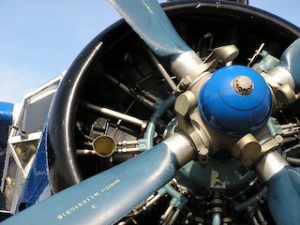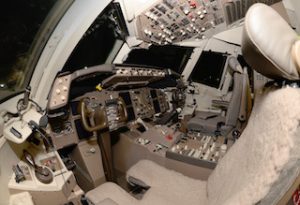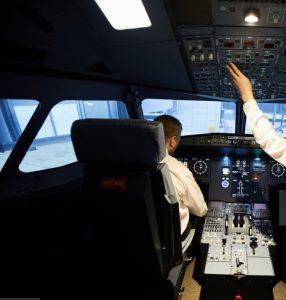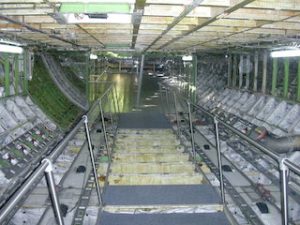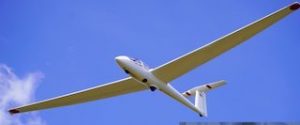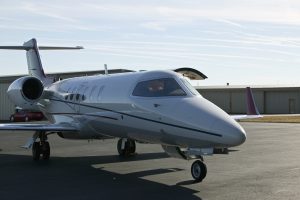The Role Of LOFT In Aviation
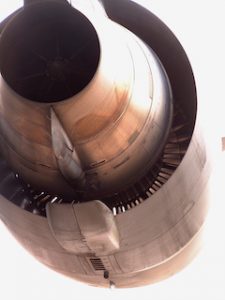 In the realm of aviation, effective training is paramount to ensuring safety, efficiency, and proficiency. Line Oriented Flight Training (LOFT) is a critical component of modern pilot training programs, designed to simulate real-world flight operations and enhance pilots’ decision-making, teamwork, and operational skills. This article delves into the role of LOFT in aviation, exploring its benefits, implementation strategies, and its impact on pilot performance and aviation safety.
In the realm of aviation, effective training is paramount to ensuring safety, efficiency, and proficiency. Line Oriented Flight Training (LOFT) is a critical component of modern pilot training programs, designed to simulate real-world flight operations and enhance pilots’ decision-making, teamwork, and operational skills. This article delves into the role of LOFT in aviation, exploring its benefits, implementation strategies, and its impact on pilot performance and aviation safety.
What is Line Oriented Flight Training?
Line Oriented Flight Training is an advanced training technique that replicates real-world flight conditions to prepare pilots for the complexities of actual flight operations. Unlike traditional training methods that may focus solely on specific procedures or technical skills, LOFT in aviation aims to integrate various elements of flight into realistic scenarios.
Key Aspects of LOFT
- Scenario-Based Training: LOFT involves creating detailed flight scenarios that mimic real-life conditions, including weather, air traffic, and emergency situations. These scenarios challenge pilots to apply their skills and knowledge in a dynamic environment.
- Full Flight Simulators (FFS): LOFT is conducted using high-fidelity flight simulators that accurately replicate the aircraft’s systems, cockpit layout, and handling characteristics. This realism is crucial for effective training.
- Crew Resource Management (CRM): LOFT emphasises the importance of CRM, which involves managing communication, teamwork, and decision-making within the cockpit. CRM skills are essential for effective crew coordination and safe flight operations.
- Performance Evaluation: Pilots’ performance during LOFT sessions is assessed based on their ability to handle scenarios, make decisions, and manage resources. Feedback is provided to help pilots refine their skills.
Importance of LOFT in pilot training
LOFT plays a vital role in pilot training by addressing several key areas essential for successful flight operations.
1) Enhanced decision-making skills
One of the primary objectives of LOFT is to improve pilots’ decision-making abilities. By simulating realistic flight scenarios, LOFT challenges pilots to make informed decisions under pressure. This includes managing complex flight situations, responding to unexpected events, and prioritising tasks effectively.
-
- Realistic scenario challenges: LOFT scenarios are designed to replicate the complexity of real-world flights, including factors such as changing weather conditions, unexpected system malfunctions, and high traffic density. This level of realism helps pilots develop the ability to make quick, accurate decisions in diverse situations.
- Training under pressure: Simulating high-pressure scenarios allows pilots to practice decision-making skills in a controlled environment. This training prepares them to remain calm and focused during actual flight operations, enhancing their ability to handle stress and uncertainty.
2) Improved Crew Resource Management
Crew Resource Management is a critical aspect of LOFT, focusing on effective communication, teamwork, and resource management within the cockpit. CRM training helps pilots work collaboratively and manage available resources to ensure safe and efficient flight operations.
-
- Effective communication: LOFT scenarios often include elements that require pilots to communicate clearly and effectively with their co-pilots and air traffic control. This emphasis on communication helps improve coordination and reduces the likelihood of misunderstandings or errors.
- Teamwork and leadership: LOFT exercises promote teamwork and leadership skills, essential for managing complex flight operations. By working together in simulated scenarios, pilots learn to delegate tasks, resolve conflicts, and support each other, fostering a cohesive and efficient team dynamic.
3) Preparedness for emergency situations
Emergencies are an inevitable part of aviation, and LOFT is designed to prepare pilots to handle these situations with confidence and competence. By simulating various emergency scenarios, LOFT helps pilots develop the skills needed to manage emergencies effectively.
-
- Simulated emergency scenarios: LOFT incorporates a range of emergency scenarios, including engine failures, system malfunctions, and adverse weather conditions. These simulations allow pilots to practice emergency procedures, make critical decisions, and execute recovery techniques.
- Response training: Training in simulated emergencies helps pilots develop the ability to respond quickly and appropriately under pressure. This preparedness is crucial for maintaining safety and minimising risks during actual flight operations.
4) Realistic flight experience
LOFT provides a realistic flight experience that traditional training methods may lack. By replicating real-world conditions, LOFT helps pilots adapt to various flight environments and situations.
-
- Immersive simulation: The use of high-fidelity flight simulators in LOFT ensures that pilots experience an immersive and lifelike training environment. This realism enhances their ability to adapt to different flight scenarios and conditions.
- Handling complex situations: LOFT scenarios often involve multiple variables and challenges, allowing pilots to practice managing complex situations. This experience helps them develop the skills needed to handle real-world flight operations effectively.
5) Increased safety and risk management
The ultimate goal of LOFT is to enhance aviation safety by improving pilots’ skills and decision-making abilities. By addressing potential safety issues in a controlled environment, LOFT helps identify and mitigate risks.
-
- Identifying weaknesses: Performance evaluation during LOFT sessions helps identify areas where pilots may need additional training or improvement. This identification of weaknesses allows for targeted training and development.
- Implementing safety improvements: LOFT provides valuable insights into pilot performance and potential safety issues. This information can be used to implement safety improvements, refine procedures, and enhance overall flight operations.
Implementing effective LOFT programs
To maximise the benefits of LOFT, it is essential to implement effective training programs that align with industry standards and best practices.
1) Designing realistic scenarios
Creating realistic LOFT scenarios is crucial for effective training. Scenarios should be based on actual flight operations and include variables such as weather, air traffic, and system malfunctions. Collaboration with experienced pilots and industry experts can help ensure scenarios are relevant and challenging.
2) Utilising high-fidelity simulators
Investing in high-fidelity flight simulators is essential for delivering realistic LOFT experiences. Simulators should accurately replicate the aircraft’s systems, cockpit environment, and handling characteristics to provide an authentic training experience.
3) Incorporating CRM training
Integrating CRM principles into LOFT is crucial for developing effective teamwork and communication skills. Training should include exercises that emphasise leadership, conflict resolution, and resource management.
4) Evaluating performance and providing feedback
Regular assessment of pilots’ performance during LOFT sessions is important for identifying strengths and areas for improvement. Constructive feedback should be provided to help pilots refine their skills and enhance their overall performance.
5) Continuous improvement and adaptation
LOFT programs should be regularly reviewed and updated to reflect changes in industry standards, technology, and operational practices. Continuous improvement ensures that training remains relevant and effective.
Future of LOFT in aviation
As aviation technology and industry standards continue to evolve, LOFT will likely see further advancements and adaptations. Key trends shaping the future of LOFT include:
- Integration of advanced technologies: Emerging technologies such as Virtual Reality (VR), Augmented Reality, and Artificial Intelligence are expected to enhance LOFT programs. These technologies will provide more immersive and realistic training experiences, allowing pilots to develop skills in advanced and adaptive environments.
- Increased focus on human factors: The future of LOFT will place greater emphasis on human factors and CRM. Training programs will incorporate simulations that address psychological and physiological aspects, helping pilots manage stress, fatigue, and other factors affecting performance.
- Personalised training experiences: Personalisation will become a significant trend in LOFT, with adaptive training scenarios and individualised feedback tailored to pilots’ specific needs and skill levels. This customization will enhance the effectiveness of training and promote continuous development.
- Regulatory and industry changes: LOFT programs will need to adapt to new regulations and industry standards. Ongoing updates to training programs will ensure compliance with evolving safety and performance requirements, maintaining high levels of competency and safety.
An essential training for airline pilots
Line Oriented Flight Training is a vital component of modern pilot training, offering a realistic and comprehensive approach to preparing pilots for real-world flight operations. By simulating complex scenarios, emphasising Crew Resource Management, and utilising advanced flight simulators, LOFT helps pilots develop essential skills for safe and efficient flying.
The benefits of LOFT, including enhanced decision-making, improved CRM, and better preparedness for emergencies, make it an invaluable tool for aviation training. As technology and industry standards continue to evolve, LOFT programs will adapt and advance, further enhancing their effectiveness and impact on aviation safety and performance.
For pilots, airlines, and flight training organizations, investing in LOFT represents a commitment to excellence and safety in aviation. By embracing LOFT, the industry can continue to foster a culture of continuous improvement and innovation, ensuring that pilots are well-prepared to navigate the challenges of modern flight operations with skill, confidence, and safety.

